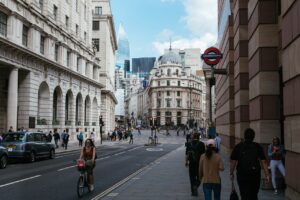In the UK, the tax system operates on the basis of both residence and domicile. Non-domicile residents, or ‘non-doms’, are UK residents who state that their permanent home is outside of the UK.
While non-doms are subject to tax on their UK income, they may not have to pay tax on any income gained from outside of the UK, or any foreign capital gains.
Non-dom individuals do not have to pay UK tax on foreign income or gains, as long as the value of this income is below £2,000 and it is not transferred into a UK bank account.
However, if these individuals earn more than £2,000 a year or move any money into the UK, then this must be reported to HM Revenue & Customs (HMRC) using a self-assessment tax return.
Any taxable income can be paid at UK tax rates which may be able to be claimed back.
Alternatively, a remittance basis can be claimed, meaning that UK tax is only paid on the incomes and gains brought to the UK. However, this means that any tax-free allowances for Income Tax and Capital Gains Tax are lost.
Additionally, an annual charge will need to be paid if the non-dom has been a resident of the UK for a certain period of time.
This annual charge will be:
- £30,000 for non-doms who have been a UK resident for at least seven of the previous nine tax years
- £60,000 for non-doms who have been a UK resident for at least 12 of the previous 14 tax years
Observations on recent trends in non-dom taxation
The tax contributions of non-doms have been increasing significantly.
According to recent figures from HMRC, non-domiciled individuals paid an average of £123,000 in tax last year.
This represents a 60 per cent increase from 10 years ago, when a non-dom individual paid an average of £76,000 in tax.
The total amount of tax paid by non-doms overall has risen by 8 per cent in the past year to £8.49 billion.
There has also been a significant increase in the amount of Capital Gains Tax paid by non-doms, with a 56 per cent rise in the last year alone (£526 million).
This increase is likely due to non-doms selling UK property portfolios as residential property investment becomes less profitable.
The impact of non-dom taxation on the economy
The above figures suggest that non-doms make a significant contribution to the UK economy through their tax payments.
The rise in tax paid by non-doms suggests that the cost-of-living crisis has affected them to an extent too.
As many non-doms pay tax on the money they submit to HMRC, it is likely that more of them are having to send money from overseas to pay for increased costs.
The taxation of non-doms is a complex area of UK tax law, but it is one that we at SMCO chartered accountants are well-equipped to handle.




